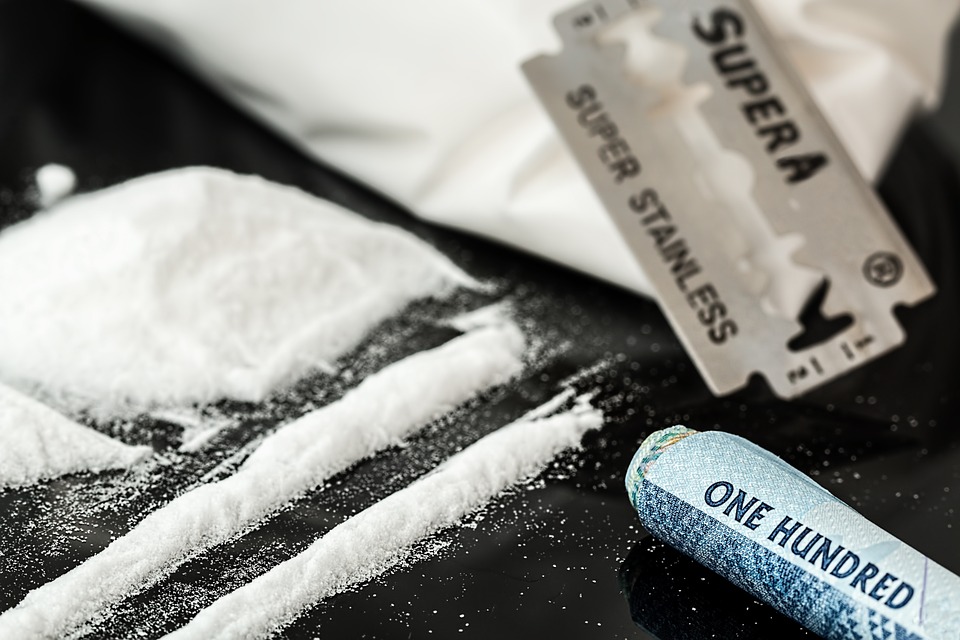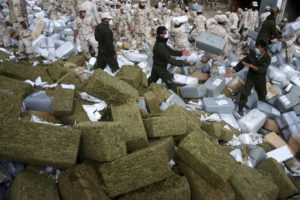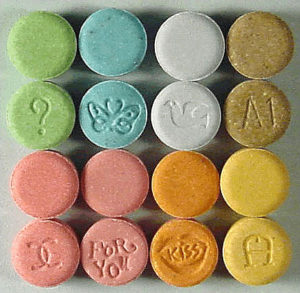The Narco-State: Does It Exist?
 https://pixabay.com/p-908533/?no_redirect
https://pixabay.com/p-908533/?no_redirect
Over the years, we’ve seen a striking global trend: drug problems growing from an obscure addiction issue in a few communities to nation-wide crises. Cases such as the cocaine cartels in Colombia during the 1980s show that drugs bring many more problems than just the addiction they cause—hand in hand with illicit drug trade comes violence, gangs, and crime. An interesting development in international politics is how drugs have become a key issue in a handful of states. These so-called “narco-states” have emerged, where more and more nations are recognized for their problems with drug control traffic. Could this be a global epidemic, or is this widely overblown?

A clear working definition of a “narco-state” needs to be established before any analysis can be made. Many scholars have varied definitions, leaving a single working definition unclear and under debate. There is a medical definition (a nation-wide epidemic of addiction to a certain drug), one that works with the presence of organized crime, and a description that looks at how much of the economy is linked with drugs—just to name a few. There are even those who argue that the term “narco-state” is a gross oversimplification of the complexities of the issue, and such a state does not actually exist. Undoubtedly, each definition of narco-state qualifies different countries under that category. Upon reflection, it seems that mass media manipulates the term in order to sensationalize their coverage. By no means does this entail that the issues outlined by articles and reports on the news are wrong or to be dismissed; it simply means that the term “narco-state” can be used and interpreted depending on the narrative. For instance, if one wished to attract more attention to the opioid addiction crisis in the US, one could use the “narco-state” description in the medical sense. Inversely, if one were to talk about violence stemming from the drug trade, one could also use the exact same term. We ought to be mindful when a country is labeled a narco-state because of the term’s multidimensional character.
While this can seem trivial, it is important to note the gravity a term like “narco-state” holds. Instead of calling an issue a “problem,” “challenge”, or even a “crisis”, labeling a country experiencing drug-related political and economic issues as a “narco-state” truly changes the readers perspective; it entails a long-term and an extremely ingrained issue that needs to be undertaken. While no common definition exists, countries experiencing political turmoil surrounding narcotics have common features: violence stemming from trade, deep-state penetration and corruption, and health-related issues. Despite these common trends, each country still experiences them in different degrees and cases. Without examining the intricacies of each country’s specific issue, it can be easy to use this umbrella label and suggest blanket statement-like ideas to solve a crisis, which will never sufficiently address any state’s drug issues.

To demonstrate this, one may look at just some of the many nations labelled as “narco-states.” Various countries require unique techniques to combat the illegal drug trade because different drugs require different responses. Afghanistan, for example, is experiencing issues surrounding its opium trade (deemed a narco-state in this Guardian article, for example). The industry had become so large and difficult to destroy due to its penetration in deep-state relations; government officials, the ones who ought to be protecting people from the dangers of illegal trade, were involved in the business as well. Traffickers were buying off the police, judges, and policymakers. Furthermore, without effective policies, poor farmers would rather continue to illegally grow opium for drug lords than be left without a job. According to the nation’s representative during a United Nations General Assembly (UNGA) committee on fighting drug trafficking and organized crimes, one of their main approaches is crop eradication accompanied by counter-narcotics infrastructure. Along with the aid of the United Nations Assistance Mission in Afghanistan (UNAMA), the government and the UNGA aim to make the country “poppy-free”.
On the other hand, the concerns Mexico’s raised in the UNGA committees revolve around the movement of drugs and weapons—something that requires an alternative approach. In a statement in 2011, then president Felipe Calderon made a statement calling for aid from the UN, specifically to drive negotiations for the International Conventions on Trade in Arms. In examining these two cases, one can see that a “narco-state” cannot be brought down by a single solution. Overarching discussions on the narcotics industry risk unnecessary competition over who has the more significant drug issue in order to gain support in their battle. The UNGA committee on drug trafficking can be helpful for highlighting key points to be addressed (sources, violence, corruption, etc.), but it cannot come up with a single solution for all; they’re better off creating special committees for each case, such as the UNAMA. Specialized agencies are not only more direct they are also more effective in dealing with the case.

In highlighting this term misuse, we turn to an examination of potential “narco-states” as described by the media. In recent news, there are increased concerns over the Netherlands’ issue with ecstasy— prompting some to label the state as a “narco-state.” Local police have expressed concerns that the amount of crime stemming from ecstasy and its trade has become too much to handle with their currently available resources. It is possible that Dutch officials could call for aid from the UN or international partners if the issue continues to escalate. If a special agency is created for the Netherlands, it will be interesting to see how it will be able to handle a culture more open to the use of recreational drugs. While aggressive approaches have worked in other countries, it could be difficult to implement this in a country where “soft drugs” are legal, where there is a certain degree of cultural acceptance surrounding the use of drugs. This could make it harder to gain support from the general public in fighting the drug epidemic. On the other hand, due to the rapid escalation of this issue, policies or specialized agencies could gain support because it shines a negative light on the country’s view of the safe use of recreational drugs. The challenge of the Netherlands could set different precedents in dealing with the narcotics trade.
Evidently, the drug trade is a complicated issue in itself. The fact that each narcotic creates different problems in different contexts further complicates the issue. Any solution proposing to deal with a “narco-state” will only be useful in attempting to understand underlying reasons and common after-effects of the trade of drugs; some countries may share common solutions if their background and narcotics industry are similar. Just like how there’s no one cure for all types of cancer, there’s no one solution for all types of issues surrounding the drug trade. It can seem safe to wrap our understanding of an issue with a blanket statement or term, but in reality, a blanket covers our eyes and prevents us from seeing the rest of the picture.
This article has been edited by Alec Regino.
